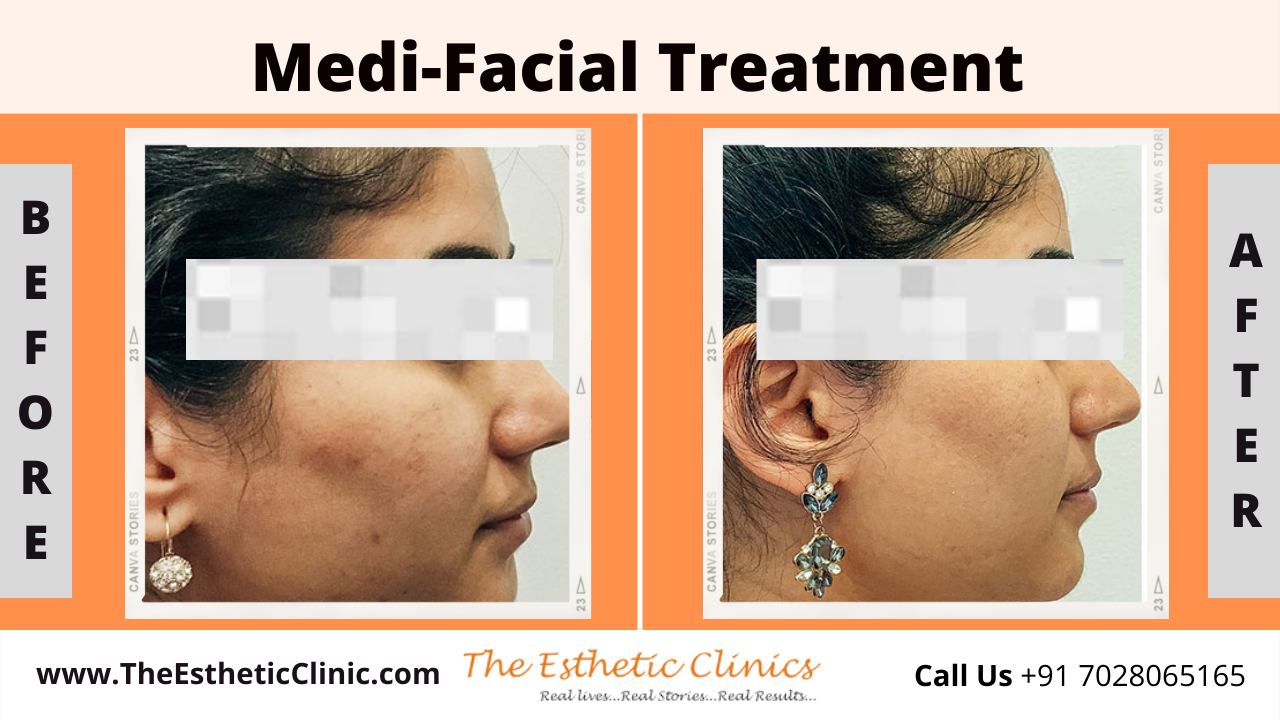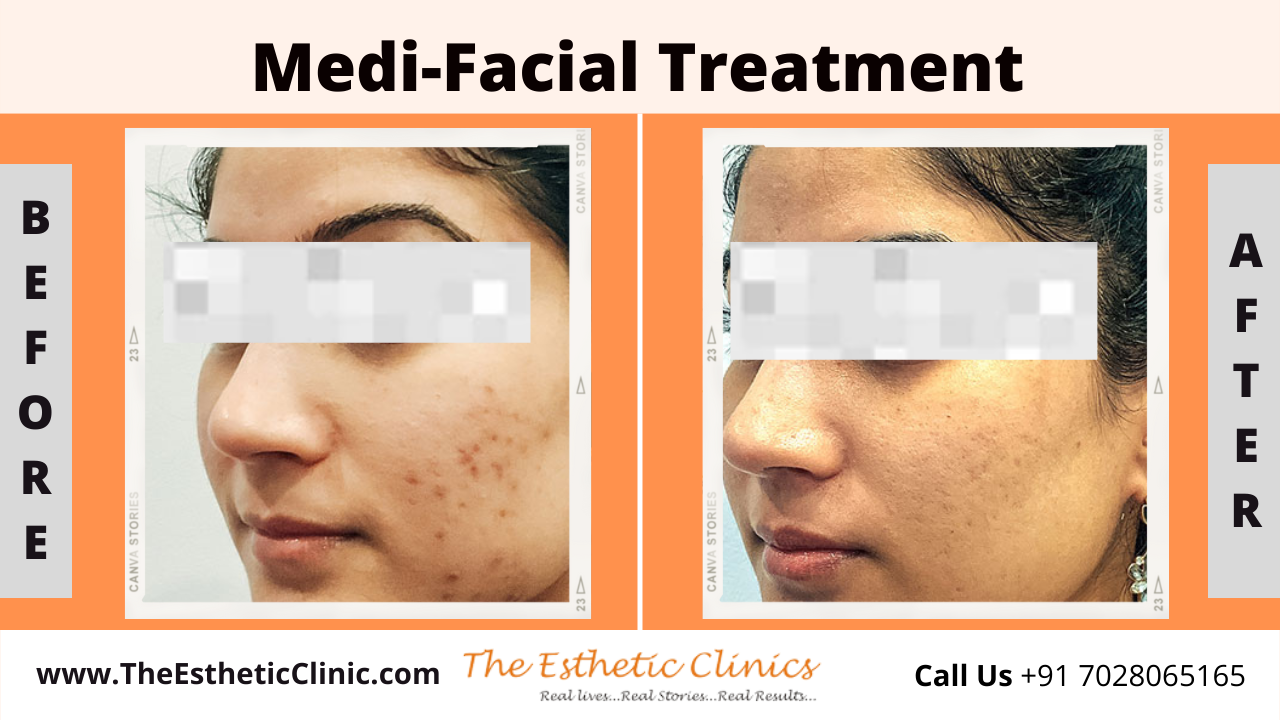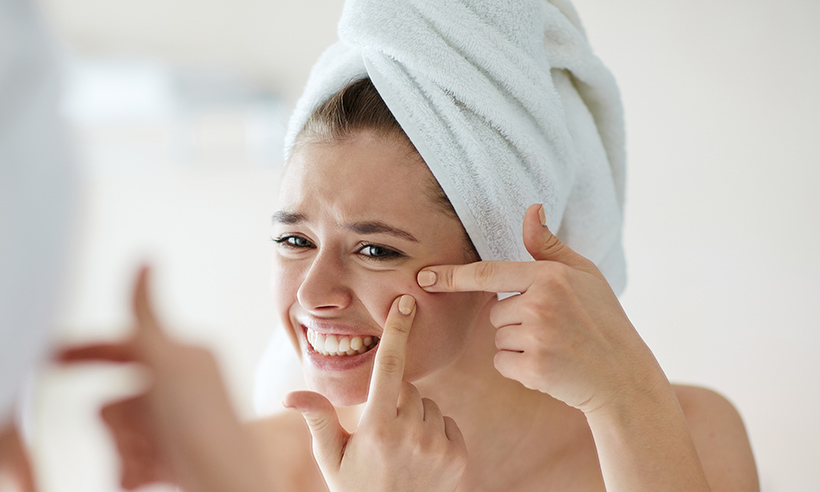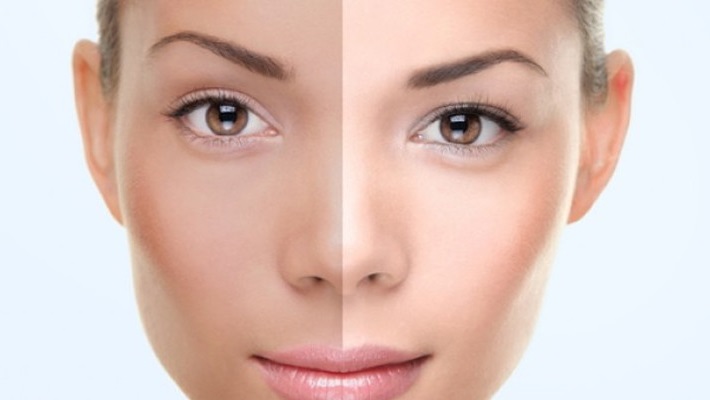While we all want a pretty face with healthy skin, some people are not lucky with it. Skin issues like wrinkles, fine lines, and scars are caused by various factors including aging, injuries, and medical conditions.
Luckily, with procedures like Medi-facial treatments, we all have a chance to enjoy healthy, young-looking, vibrant skin. This treatment is performed at medi-facial treatment clinics by dermatologists or cosmetologists like Dr. Rinky Kapoor, who are licensed and well-experienced in the respective field.
What is a Medi-Facial Treatment
Medi-facial treatment is a type of non-invasive facial treatment that is performed to improve the appearance of the skin and overall skin health. It uses medical-grade skincare products to address skin concerns such as wrinkles, fine lines, skin dehydration, and acne.
Unlike other traditional skin care treatments like facials that people go for to get pampered and relaxed, Medi-facial treatment is done at a medi-facial treatment clinic by a licensed medical professional, to address specific skin issues.
It can also be performed by a cosmetologist like Dr. Rinky Kapoor of The Esthetic Clinics who has the specialized training and relevant experience in medi-facial treatments. The process of the treatment involves the practitioner first assessing the patient’s skin condition and then tailoring the treatment to address the specific needs of the patient’s skin.
The treatment uses medical-grade skincare products that contain active ingredients such as antioxidants, peptides, retinoids, and alpha-hydroxy acids. These ingredients are specifically used because of their ability to penetrate the skin’s surface and provide therapeutic benefits at a deeper level.
During the procedure, patients go through some steps including cleansing, exfoliation, extraction, and hydration of the skin. Additional steps such as microdermabrasion, dermaplaning, or chemical peels may also be incorporated to further enhance the results, which is to improve the texture, tone, and radiance of the skin, while also addressing specific skin concerns.
Generally, Medi-facial treatments are considered safe and effective for most skin types and can be performed on a regular basis to maintain optimal skin health. It is important for patients to work with a trusted professional who can help them determine the suitable treatment for their specific skin types.
Who Makes a Good Candidate for a Medi-Facial Treatment
Medi-facial treatment can treat different skin concerns, which makes it a good option for many people. Still, there are factors that both the patient and the doctor must put into consideration before deciding if that is the best option.
These factors include;
The patient’s skin Type: While medi-facial treatments have been proven to be safe for most skin types, it is important to discuss any other skin issues that may cause complications and adverse side effects. This may include allergies and skin sensitivities.
Skin Concerns: Patients with skin concerns such as acne, hyperpigmentation, fine lines, wrinkles, and dehydration make good candidates for medi-facial treatments. Thorough evaluation by a qualified medical professional must be practiced before any procedure is planned.
Overall Health: The patient to be treated must be in good overall health to make a proper candidate for the treatment. If a patient has a medical condition that affects the skin or immune system, they should first consult with a medical professional to determine if they are fit enough for the treatment and what other better options are available.
Realistic Expectations: Medi-facial treatment can be beneficial in a lot of things. But patients need to have realistic expectations for the outcome of the treatment to avoid disappointments and dissatisfactions. They should understand that the treatments may not provide the same dramatic results that more invasive procedures such as facelifts and laser resurfacing may provide.
Frequency of Treatment: For a patient to make a good candidate, they should be committed to undergoing regular treatments. This is important because medi-facial treatments are the most effective when performed regularly, typically every four to six weeks.
Overall, anyone looking to improve their skin health and address some skin concerns makes a good candidate for Medi-facial treatments. Make sure to consult with a qualified medical professional to determine the best treatment to address the specific concerns and achieve the desired goals.
How Often to Get Medi-Facial Treatment
Factors such as skin type, specific skin concerns, and lifestyle habits are considered to determine how often the treatment should be done. Generally, the treatments are scheduled every four to six weeks to maintain optimal skin health and address any concerns.
Otherwise, individuals with specific skin issues or conditions may need more frequent treatments. For example, people with acne-prone skin may benefit from more frequent treatments to prevent breakouts and keep their skin clear. Similarly, people with sensitive skin may need to space out their treatments to avoid irritation or further skin damage.
Working with an experienced cosmetologist like Dr. Rinky Kapoor can help determine the best frequency of Medi-Facial treatments for the specific needs of the skin. They can assess skin concerns and create a customized treatment plan to help achieve the desired results.
They can also offer recommendations for at-home skincare routines to help patients maintain the results of their Medi-Facial treatment in between appointments.
Unsuitable Candidates for Medifacial Treatment
Just like there are suitable candidates for medi-facial treatments, there are also some patients that are considered unsuitable and may need to seek alternative treatments. Here are some factors that make an individual suitable for the treatment;
Active Skin Infections: When patients with active skin infections like cold sores and herpes, undergo medi-facial treatment, the infection may be aggravated, causing it to spread to other areas. The treatment should only be done once the infection is cleared.
Recent Facial Surgery: Patients who have undergone facial surgery are not suitable for medi-facial treatments, especially if the surgical sites are still fresh. They should wait until the area has fully healed before they decide to go through another facial procedure. Otherwise, the treatment can irritate the healing skin and delay the healing process.
Sunburn: If a patient with sunburned skin gets a medi-facial treatment, it may irritate the skin and cause further damage. Patients should wait until the skin has fully healed before undergoing any facial treatment (unless it is to treat the sunburns).
Pregnancy: Some ingredients used in medi-facial treatments may not be safe for the developing fetus, hence making pregnant women unsuitable for the treatment. Patients can consult with their healthcare provider for a safer alternative.
Skin Sensitivity: Patients with extremely sensitive skin may not be suitable candidates for medi-facial treatment. This is because some ingredients used in the treatment may cause symptoms such as irritation and redness, especially in people with rosacea or eczema.
Blood Thinners: When Medi-facial treatment is done on patients who are taking aspirin, warfarin, and other blood thinners, it may cause symptoms such as bruising and bleeding.
It is therefore crucial for patients to discuss any skin conditions and allergies they may have with their doctors before they choose any procedure. This will help the practitioner determine the best alternative treatment that is safer and more effective for the patient’s skin type and condition.
What Happens Before, During, and After Medi-Facial Treatment
There are several steps, precautions, and instructions that both the practitioner and the patient must observe in order to achieve the best results.
Here is what to expect during each phase of the treatment:
- Before the Medi-Facial Treatment
Consultation: Before the actual treatment, patients should consult with a licensed practitioner to discuss their skin concerns, their medical history, their skincare routine, and their goals and expectations of the treatment.
Skin analysis: After the consultation, skin analysis follows. In this stage, the esthetician analyzes and evaluates the patient’s skin to determine their skin type, current condition, and any underlying issues that may need to be addressed before and/ or during the treatment.
Customization: The professional will then use his/ her findings and the information they have gathered during the consultation and skin analysis, to create a customized treatment plan that is tailored to the patient’s specific needs.
- During the Medi-Facial Treatment
Cleansing: Before the practitioner starts with treatment, they first cleanse the skin to remove any products and dirt such as makeup and other impurities, and get the skin ready for treatment.
Exfoliation: After cleansing, dead skin is then removed to improve the texture.
Extraction: This step is not always necessary but in cases where it is needed, the practitioner will remove blackheads, whiteheads, and other impurities from the pores.
Masking: A mask is then applied to the skin to address concerns such as hydration, brightening, and acne control.
Serums and moisturizers: Serums and moisturizers may also be applied to the skin to provide nourishment and protection.
- After the Medi-Facial Treatment
Aftercare instructions: After the treatment, the esthetician provides the patient with aftercare instructions to help achieve optimal results. Patients may be asked to avoid sun exposure, use gentle cleansers and moisturizers, and avoid harsh chemicals or scrubs.
Home care products: The esthetician may recommend home care products that are tailored to the patient’s specific skin concerns and goals.
Follow-up appointments: Follow-up appointments will also be scheduled to monitor the healing and results of the treatments. Treatment may also be scheduled at regular intervals and frequency depending on the patient’s skin type and issues.
Following these steps before, during, and after Medi-Facial treatment will help achieve healthy, glowing skin and maintain the results over time.
Types of Medi-Facial Treatment in India
The Esthetic Clinics offer multiple different medi-facial treatments to fit patients’ individual concerns. Some common types of these treatments are:
Hydrating Facial: As the name suggests, this treatment is done to help hydrate and nourish the skin. It involves the use of cleansers, exfoliates, and hydrating masks, and is best suitable for patients with dry and/ or dehydrated skin.
Anti-Aging Facial: Anti-aging facial treatments are usually performed to improve the appearance of aging symptoms such as wrinkles and fine lines. The treatments include the use of anti-aging products that supports the production of collagen to improve skin elasticity and overall quality. These products include ingredients such as retinoids and peptides.
Acne Facial: Acne facial in India is best recommended for people dealing with acne. The treatment may involve using exfoliants and acne-fighting ingredients such as salicylic acid or benzoyl peroxide and pore-cleansing masks, to help reduce acne breakouts and improve the overall health of the skin.
Brightening Facial: Brightening facial treatment is an excellent option for people with hyperpigmentation or dull skin. It uses products that contain ingredients such as vitamin C, kojic acid, or licorice that can help brighten and even out the skin tone.
Oxygen Facial: This treatment involves the use of a pressurized stream of oxygen to deliver active ingredients to the skin. It helps hydrate and plump the skin, making it an excellent option for individuals with dry or dehydrated skin.
Chemical Peel: There are different types of chemical peels that can be used to address different skin issues. This treatment uses chemical solution applications to remove the outermost layers of dead skin cells and improve the skin texture and elasticity, and the appearance of fine lines, wrinkles, and hyperpigmentation.
These are just but a few of the many types of treatments available in Medi-facial treatment clinics like The Esthetic Clinics. The specific treatment Dr. Rinky Kapoor administers depends on the individual’s skin concerns and goals.
Benefits of Medi-Facial Treatment
Some reasons that make medi-facial treatment important include:
Improved Skin Health: This is one of the main reasons why people opt for medi-facial treatments. It uses skincare products that are formulated with active ingredients, which can deeply penetrate the skin’s surface and provide multiple therapeutic benefits.
These ingredients can help improve skin health by addressing different issues such as acne, hyperpigmentation, and dehydration, and improve overall skin texture and tone.
Anti-Aging Properties: Products used in medi-facial treatments are designed to help stimulate the production of collagen, which helps improve the skin texture and elasticity, and reduce the appearance of fine lines, wrinkles, and other signs of aging.
Enhanced Skin Rejuvenation: Medi-facial treatments use various advanced techniques and tools, such as microdermabrasion and chemical peels, to exfoliate and resurface the skin. This process can help to remove dead skin cells, unclog pores, and promote cell turnover, which results in a more youthful and radiant appearance.
Customized Approach: One of the best things about medi-facial treatments is that they can be personalized to meet patients’ individual needs and concerns.
Increased Confidence: When the skin is looking healthy and glowing, individuals feel good about themselves, which also boosts their self-confidence. Most patients who undergo medi-facial treatment often report feeling more confident, satisfied, and comfortable in their own skin.
How Long Does Medi-Facial Treatment Take
There are different types of Medi-facial treatments in India all of which are performed differently to address different skin issues. The length of the procedure depends on factors such as the skin type, the type of the procedure, and the individual’s concerns.
Generally, most procedures only take a couple of minutes, at least between 30 minutes to an hour to complete a single session. Patients may also need to schedule more appointments for repeated treatments depending on the skin concerns and the results they want to achieve.
After the treatment, some patients experience redness or sensitivity, which typically resolves within a short time. It’s important that patients follow all prescribed instructions to help support optimal results.
Risks and Side Effects
When performed by a qualified and experienced cosmetologist like Dr. Rinky Kapoor, medi-facial treatments are generally safe and effective. However, as with any other cosmetic and medical procedures alike, there may be some risks and potential side effects that patients should be aware of.
Some of these risks and side effects are:
Skin Irritation: Some ingredients used in the process of exfoliation and other procedures during the treatments may cause skin irritation, redness, and sensitivity. It is important that the patient is healthy and fit, and doesn’t have any allergies or prior skin conditions to prevent this from happening.
Allergic Reactions: Allergic reactions can also occur, especially in individuals who are allergic to some of the ingredients used in the treatment. Patients may experience symptoms such as itching, swelling, and hives. During the initial consultations, patients should let their practitioner know if they have any allergies and sensitivity to some products, to enable them to recommend the safest and most effective treatment options.
Sun Sensitivity: Some medi-facial treatments can make the skin more sensitive to the sun. Sunscreen with an SPF of at least 30 is recommended for patients who are more prone to sun sensitivity as well as measures such as avoiding prolonged sun exposure for a couple of days after the treatment.
Infection: In some cases, medi-facial treatments can cause infections, especially if proper hygiene practices are not observed or if the equipment used is not properly sterilized.
Pigment Changes: Some types of exfoliating treatments like chemical peels can cause temporary or permanent changes in skin pigmentation. This especially often happens to patients with a darker skin complexion. Working with a professional like Dr. Rinky Kapoor can help determine the best course of action and treatments that can prevent discoloration and/ or color changes.
Scarring: In cases where aggressive and/ or deep exfoliating products are used, medi-facial treatments can cause scarring or changes in skin texture. To prevent this, products that are gentler on the skin are recommended.
Bruising: Mild bruising and/ or swelling after a medi-facial treatment, especially if extractions were performed, may also occur.
Medi-Facial Treatment Before After Photos, See The Patient Result-











